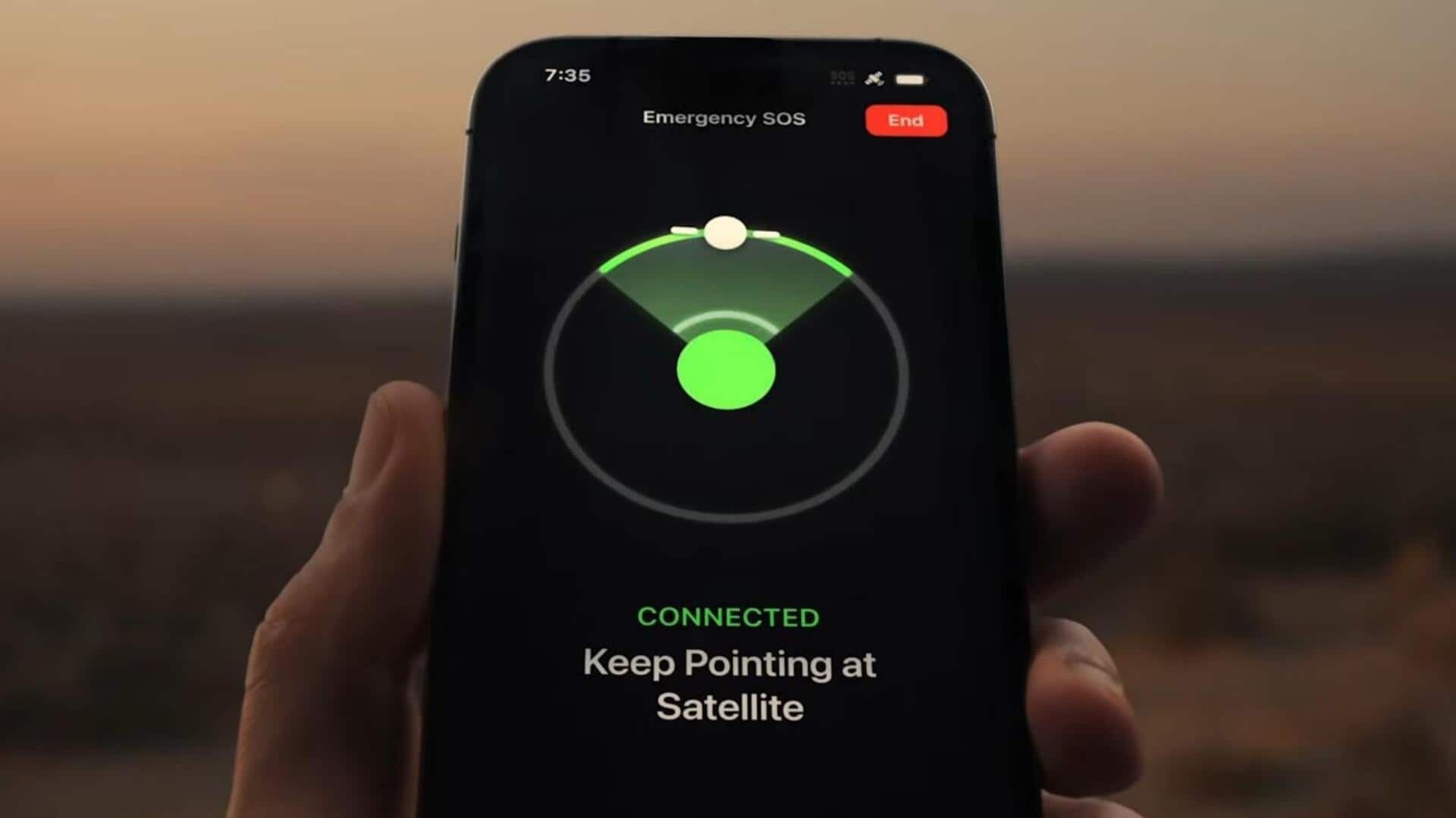
According to WSJ , Apple is facing off with billionaire Elon Musk in an effort to eliminate mobile signal "blind spots" using satellite technology.
Specifically, the iPhone maker is investing heavily in satellite communications to keep users connected in places where traditional wireless signals are unavailable. Meanwhile, Musk's SpaceX has launched more than 550 satellites providing mobile connectivity through its Starlink service.
To increase their influence, the two companies are competing for the right to use radio frequency bands to transmit signals, which are in limited supply.
Satellite race
Apple’s investment in space has upset Musk, according to people familiar with the matter. In response, SpaceX has pushed federal regulators to delay its Apple-funded satellite expansion effort, the WSJ reported.
In 2024, Apple spent $1.5 billion to acquire a 20% stake in GlobalStar, a company with coverage in the US, Europe, Australia and some areas in South America, to integrate satellite connectivity on the iPhone.
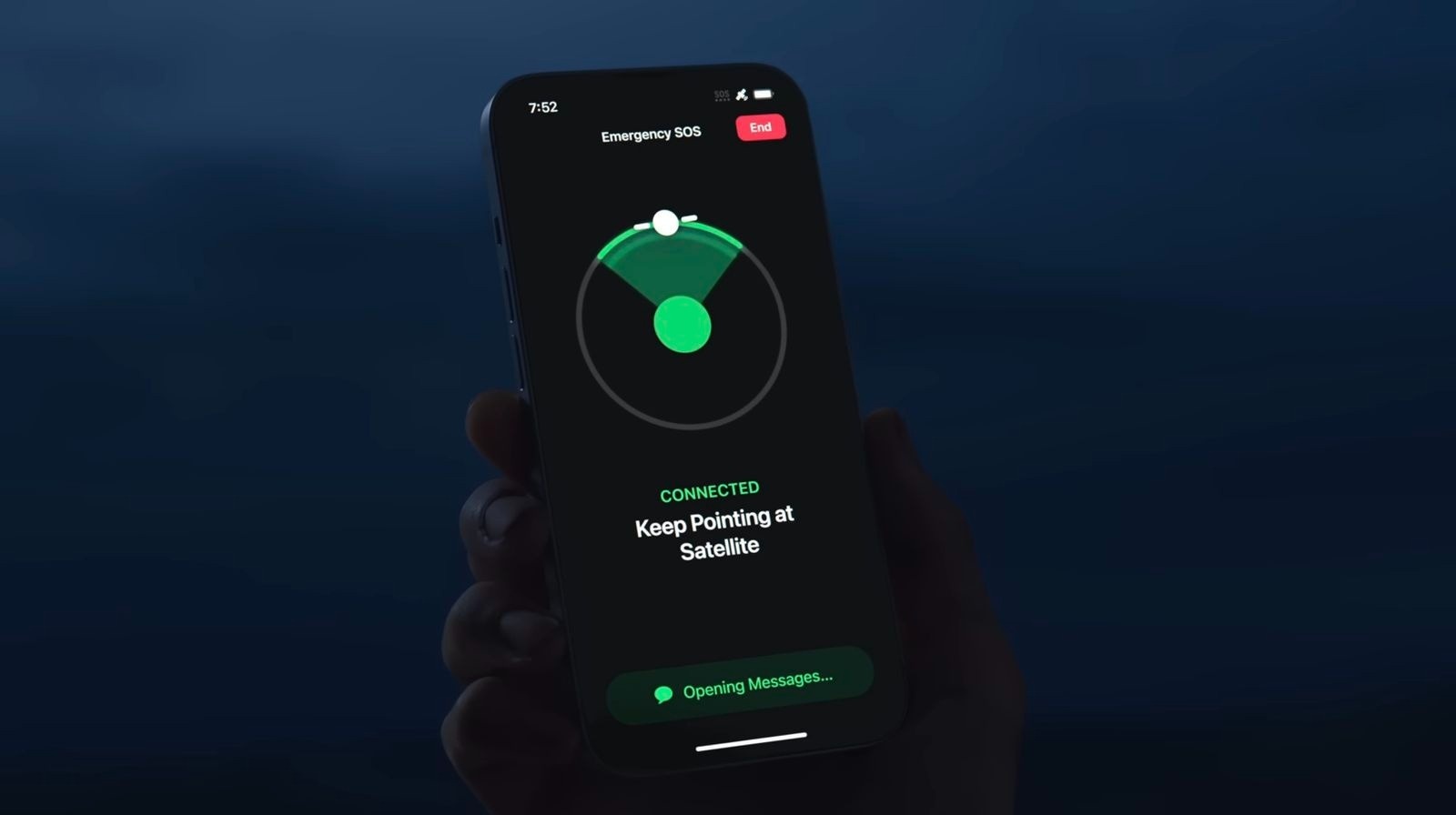 |
The emergency messaging feature on the iPhone 14 could create a new trend in 2023. Photo: Apple. |
Through this partnership, Apple's service allows users to send text messages, call emergency services, and seek roadside assistance in areas without cellular coverage. Among smartphone manufacturers, Apple is the first to launch satellite messaging on the iPhone 14 series.
This seems to be the next step in the smartphone industry, using satellites to support mobile networks and stay in touch.
Even if the majority of users will never find themselves in a dangerous situation, this feature still acts as a safety net, allowing users to have support if they want to go on long trips.
Some iPhone 14 users are said to have been saved by the emergency messaging feature. "This technology has helped save lives. These satellite features are designed to complement carrier services, giving users more ways to stay connected," Apple said.
However, documents revealed by the WSJ show that SpaceX has asked the US Federal Communications Commission (FCC) to reject Globalstar's application to use certain spectrum for its new Apple-funded satellite network.
Billionaire Elon Musk's satellite company calls the radio waves it uses to transmit emergency signals to Apple users an untapped resource.
Occupy space
In fact, SpaceX has been in the game since August 2022, partnering with T-Mobile on a plan to provide anytime, anywhere messaging services in remote areas.
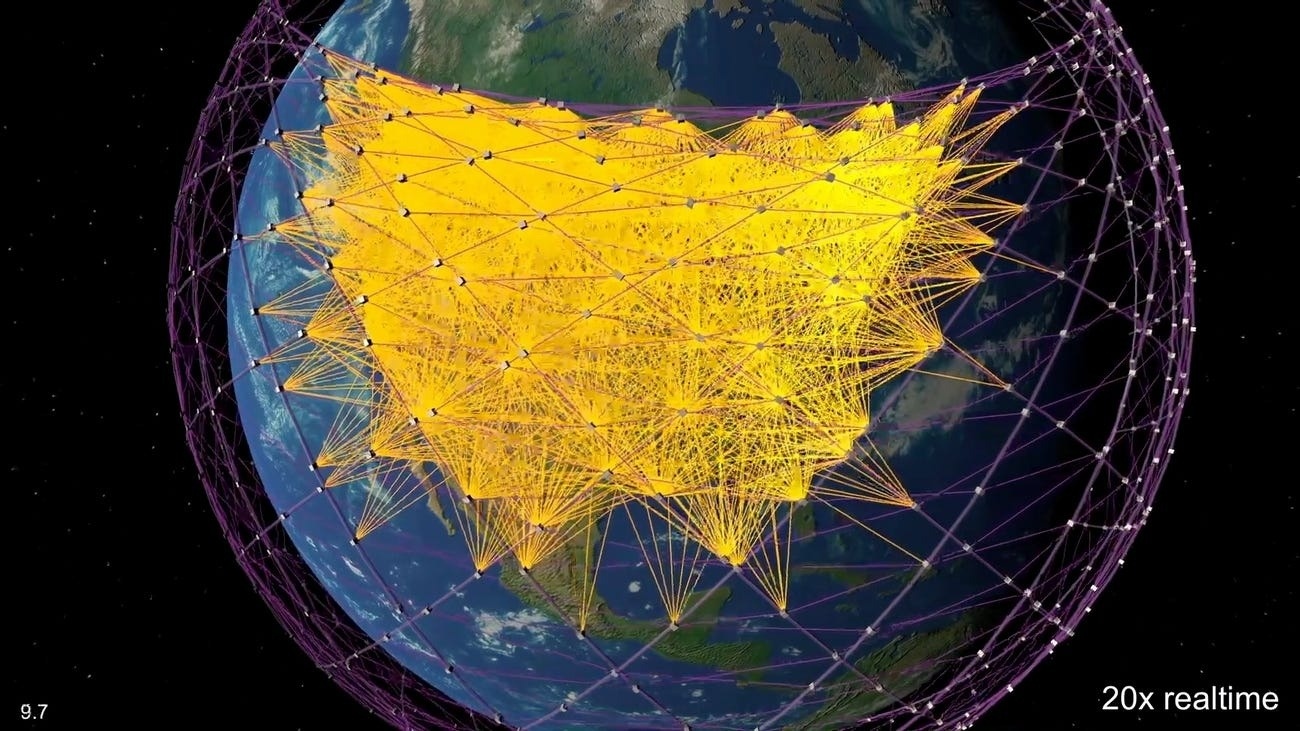 |
An illustration of Starlink satellites in orbit. Photo: University College of London. |
Starlink is a satellite-based global Internet coverage project by the space exploration company SpaceX, founded by Elon Musk. This service creates a network of thousands of satellites around the Earth, helping to provide high-speed Internet from low orbit to remote, isolated areas on Earth.
Since its launch in October 2020, Starlink says it now has 400,000 subscribers across the 36 countries it operates in. Almost every major player in the transportation industry, including luxury cruise lines and airlines, wants to partner with the service.
Citing inside sources, the WSJ said some Apple employees believe SpaceX's announcement of the T-Mobile deal was planned to precede a subsequent announcement that Apple would offer satellite emergency messaging on some iPhone models.
This is not the first time the world's richest man has gone head-to-head with the world's most valuable company. Musk's Tesla and Apple have long competed for talent to develop self-driving cars.
The two have also had disputes over X (formerly Twitter). Sources close to Musk said he sometimes considered building his own smartphone out of frustration with the way Apple controlled the distribution of third-party apps like X.
However, according to analysts, penetrating a market dominated by Apple and Samsung, which account for about 40% of the global smartphone market, will be very difficult.
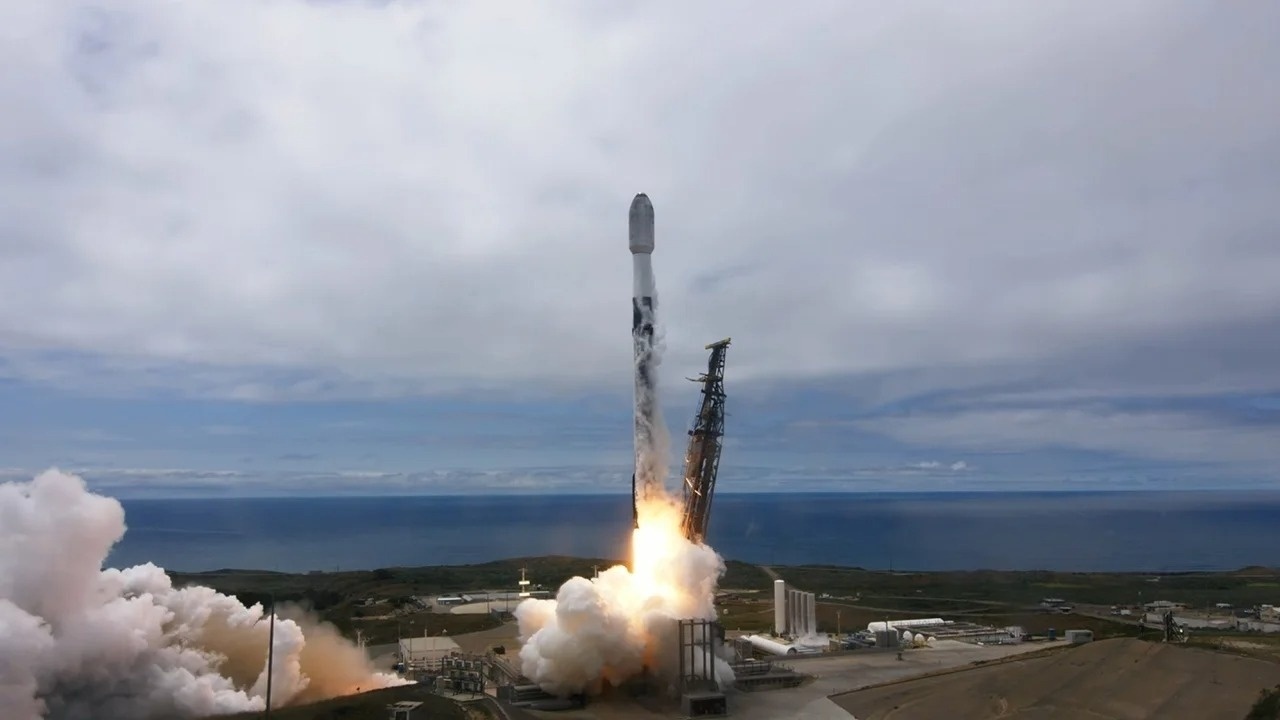 |
Apple has used SpaceX rockets to launch satellites into space. Photo: SpaceX. |
SpaceX, through its Starlink project, has access to a much larger number of satellites than Apple, leading to a paradox where industry leaders believe Globalstar alone cannot meet the iPhone maker’s needs.
To avoid relying on competitors, Apple has held talks with several other satellite providers over the years to secure more spectrum. Most recently, the WSJ revealed that the company considered investing in Colorado-based satellite operator EchoStar to provide additional satellites and spectrum to support iPhone connectivity.
Apple’s approach has its advantages, according to satellite executives. For potential partners it has approached, it’s an opportunity to offset aging infrastructure with regional and global spectrum rights that it has spent years trying to monetize.
Source: https://znews.vn/cuoc-chien-moi-giua-apple-va-elon-musk-post1542321.html


![[Photo] Unique folk games at Chuong Village Festival](https://vstatic.vietnam.vn/vietnam/resource/IMAGE/2025/4/10/cff805a06fdd443b9474c017f98075a4)

![[Photo] Prime Minister Pham Minh Chinh chairs meeting to discuss tax solutions for Vietnam's import and export goods](https://vstatic.vietnam.vn/vietnam/resource/IMAGE/2025/4/10/19b9ed81ca2940b79fb8a0b9ccef539a)






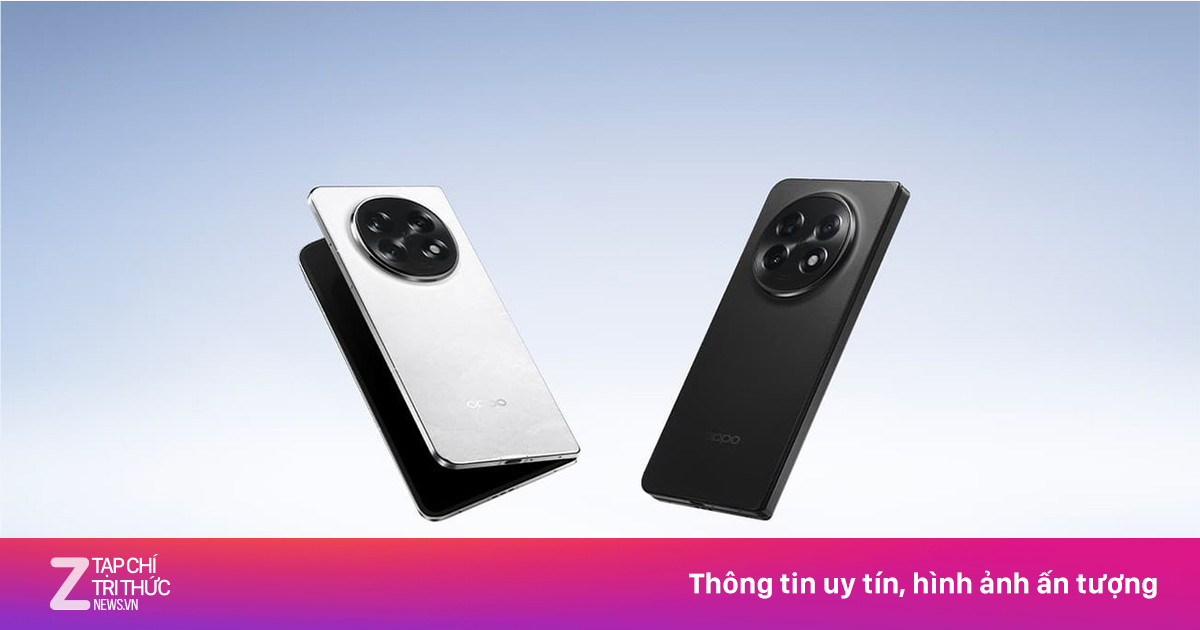
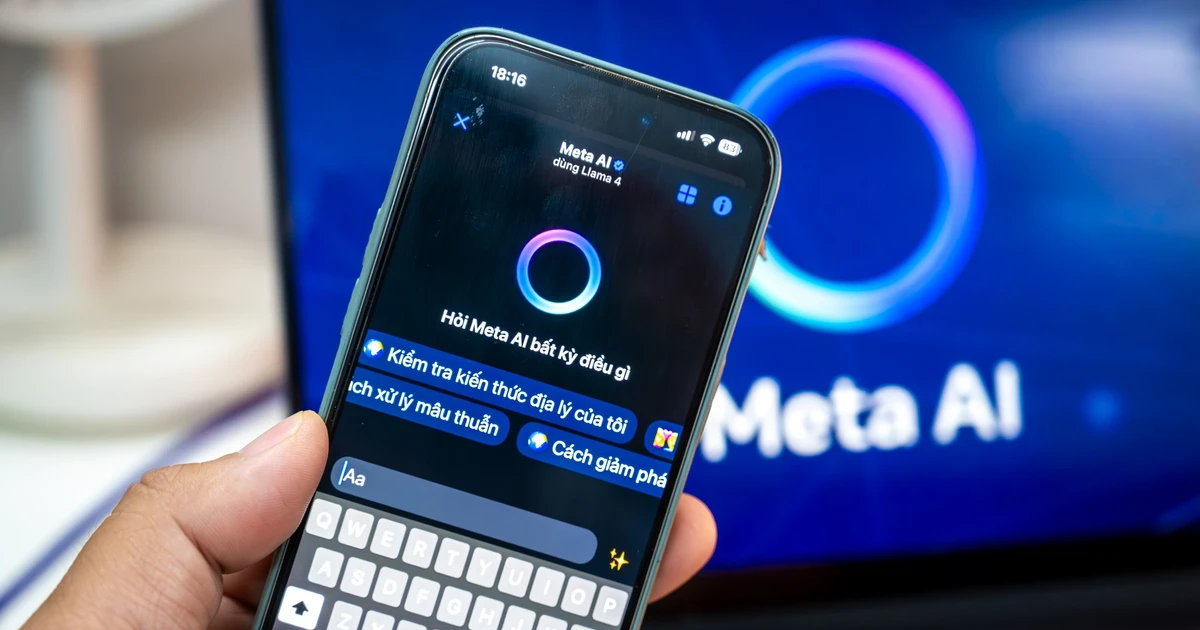










































































Comment (0)